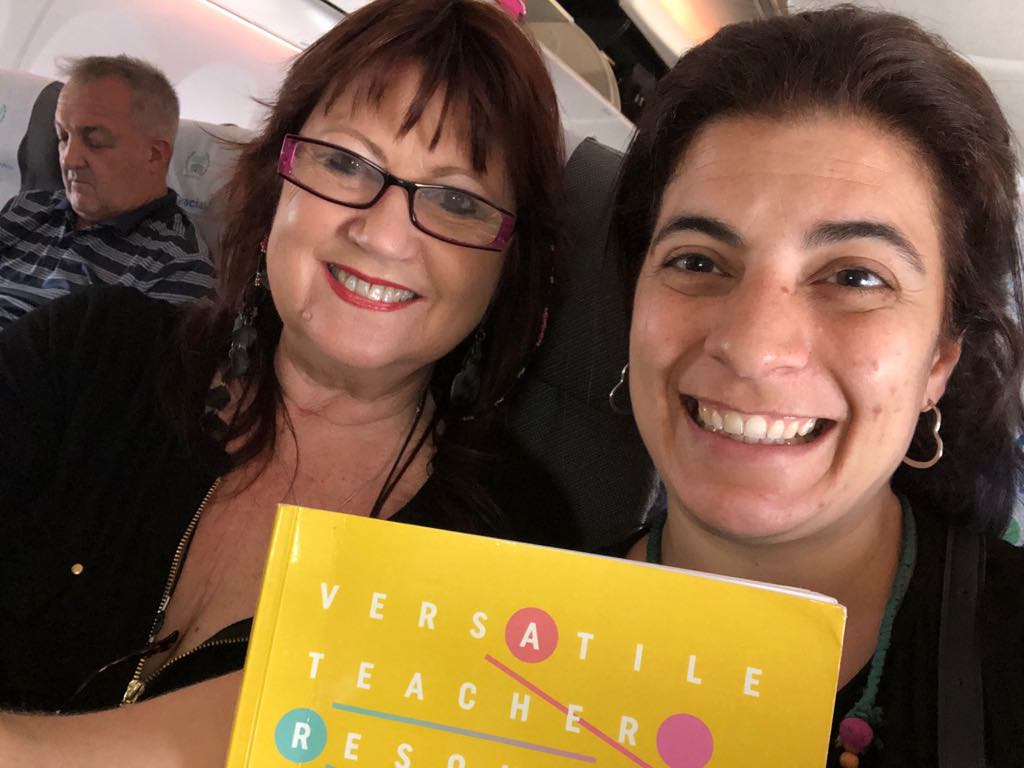The Versatile ELT BlogA space for short articles about topics of interest to language teachers.
Subscribe to get notified of
|
The Reluctant TeacherThis extract from the Introduction to Out of Your Seats addresses some of the issues that cause language teachers' reluctance to engage in drama activities. |
| Susan Hillyard and Eugenia Dell'Osa have chosen such great travel reading that they want to share it with the world. Can't blame them really. :-) They were flying Buenos Aires to Bolivia, I believe. Thanks for your support, Susan and Eugenia. |
Syllabus Stress Table
Task-based pronunciation teaching
Given that English word stress is a problem without a systematic solution, the Syllable Stress Table is an activity that focusses students' ears on the number of syllables in words, and then which of them is stressed. I have found that once students know this about a word and know that this is worth focussing on, they have more confidence in their pronunciation and they have a system for developing this aspect of English pronunciation.
To make a comment, click the title of the post.
Archives
March 2024
February 2024
January 2024
December 2023
November 2023
June 2021
September 2019
April 2019
February 2019
January 2019
August 2018
September 2016
Categories
All
AI
Book Of How To
Chunk
Classroom Teaching
Corpus
CorpusMate
DESKE
EMI
Graded Readers
Grammar Pattern
Learning Language From Language
Metacognition
Out Of Your Seats
Pronunciation
Teacher Training
VersaText
Versatile News
Vocabulary



